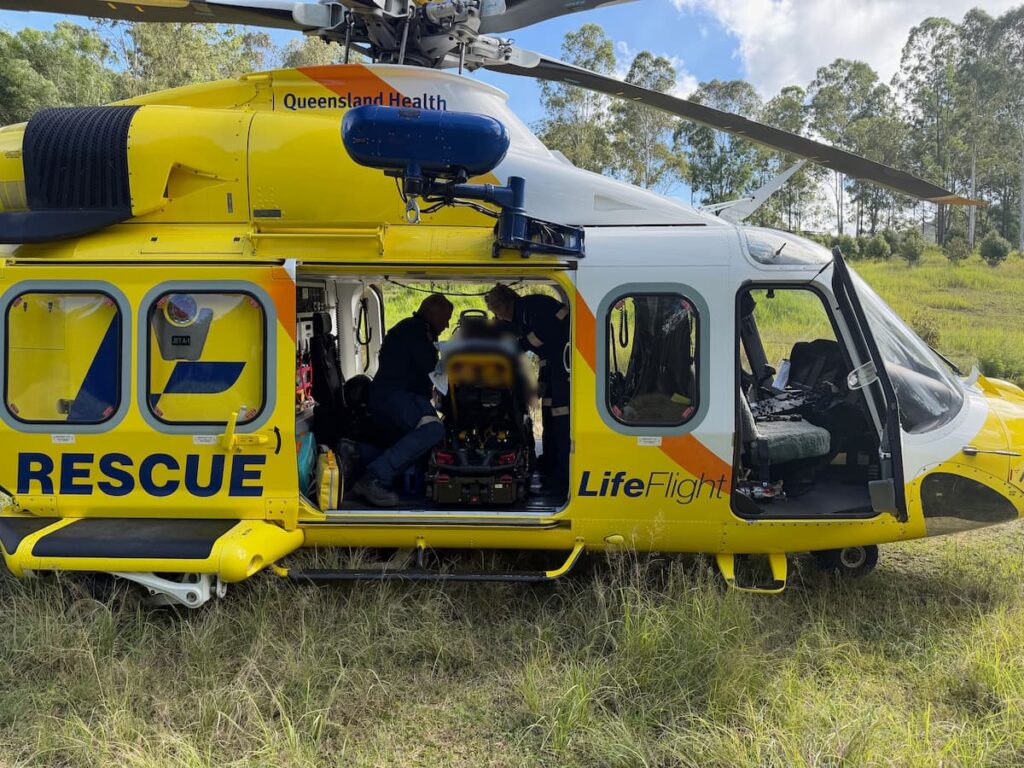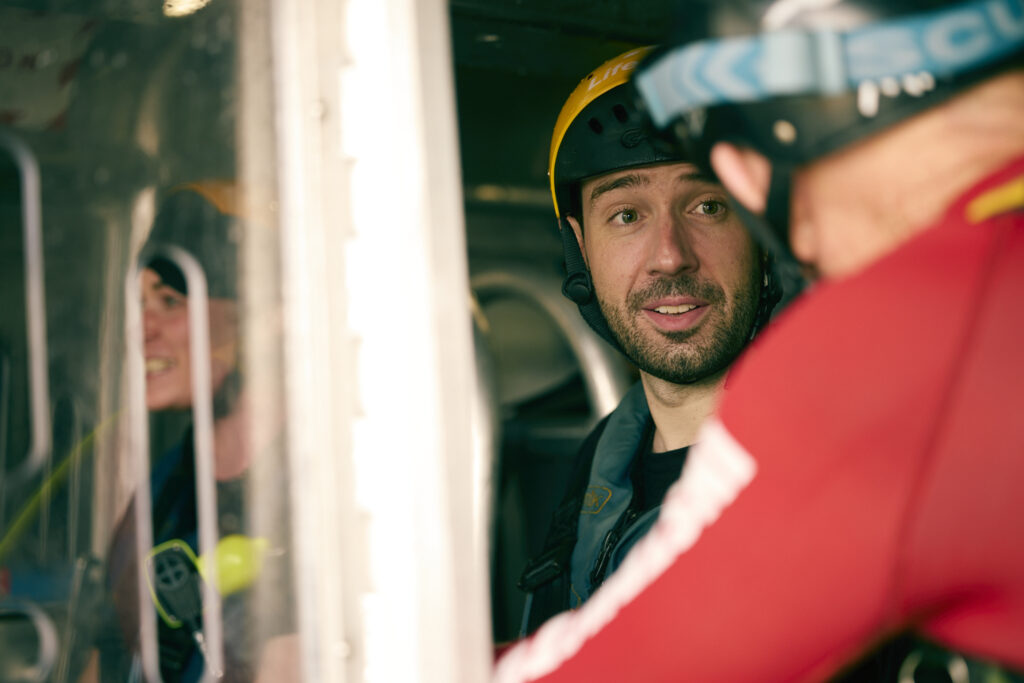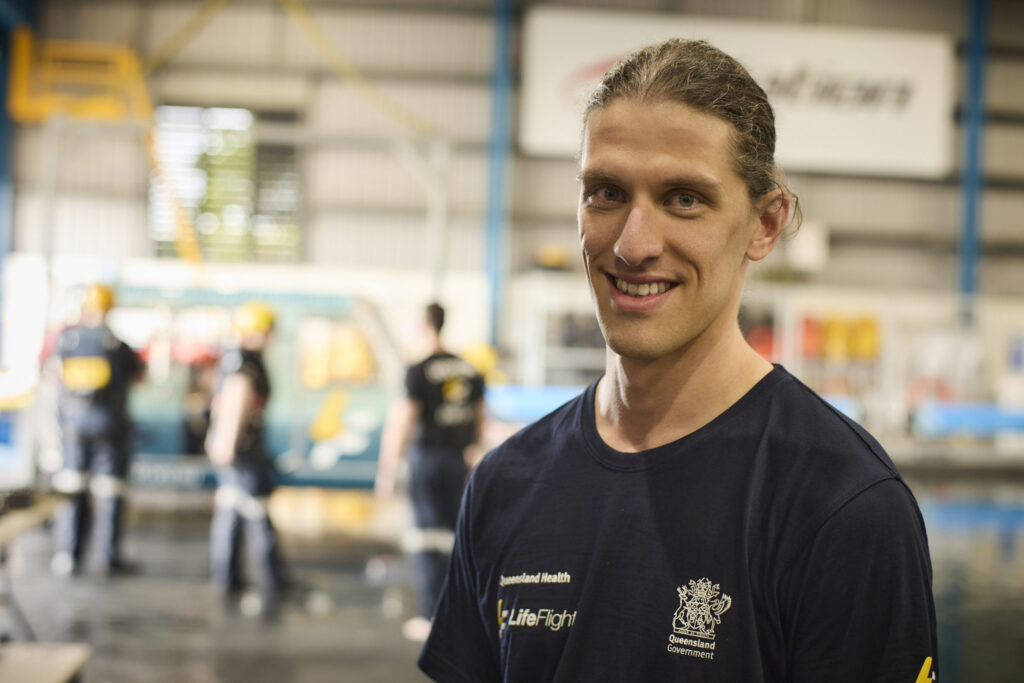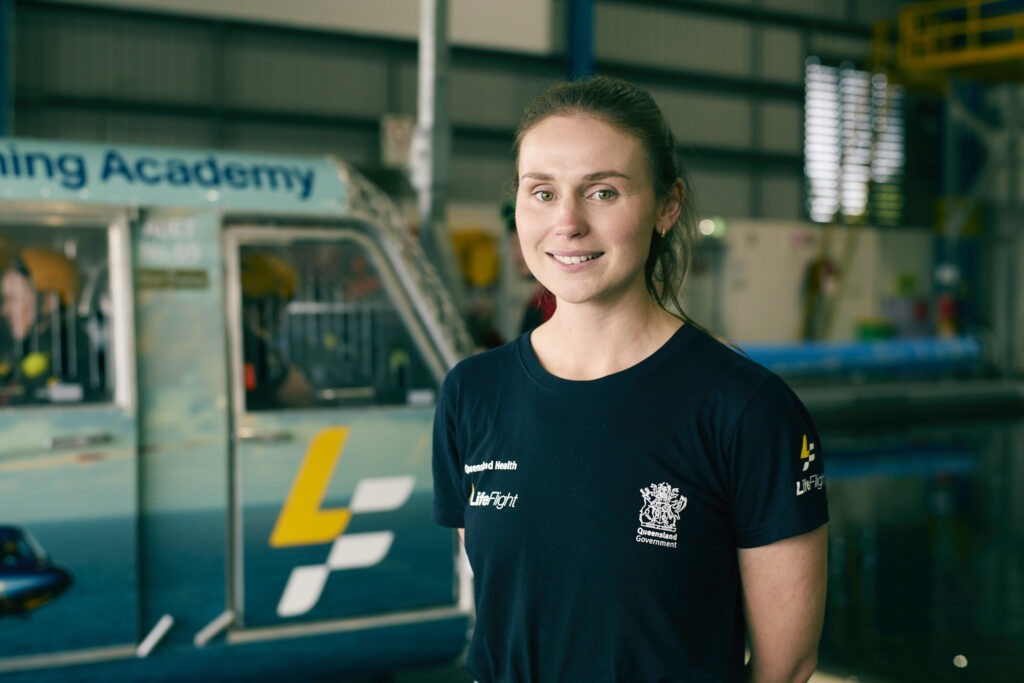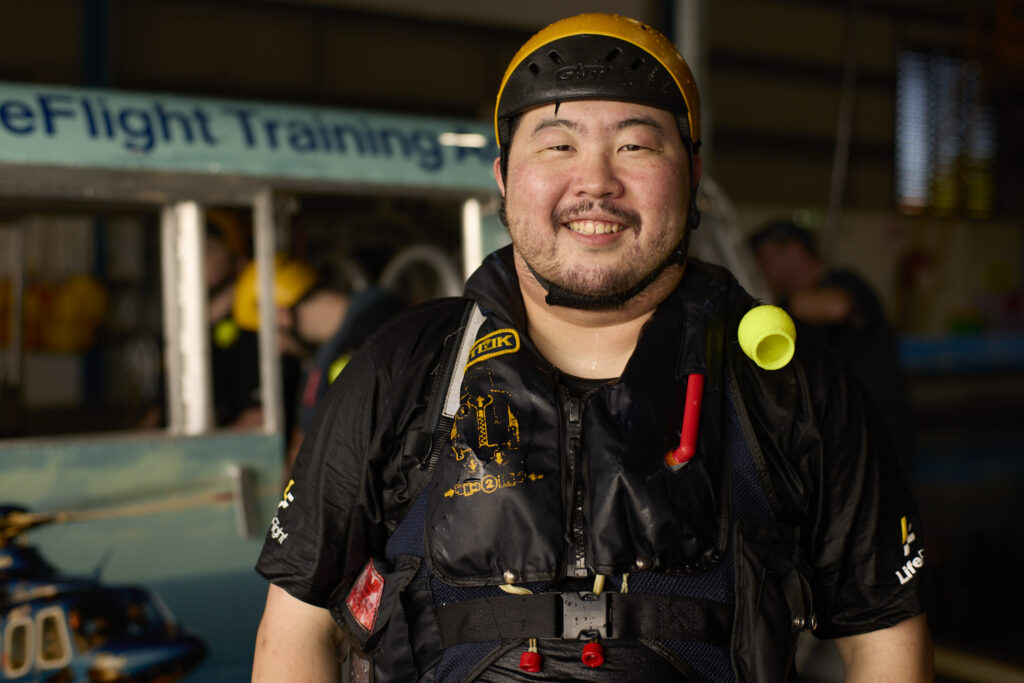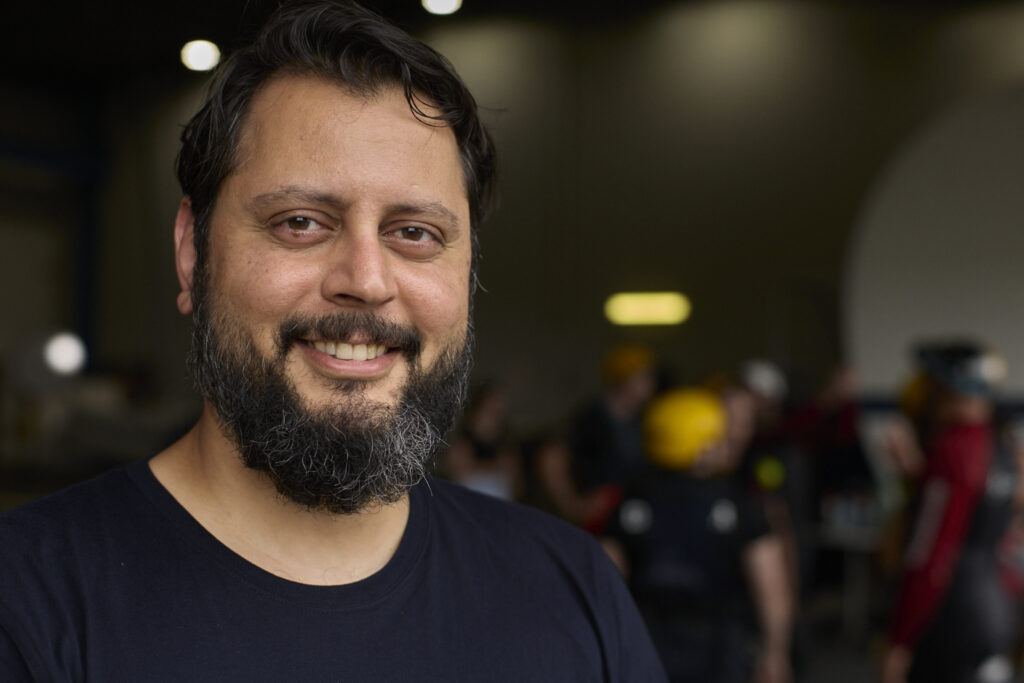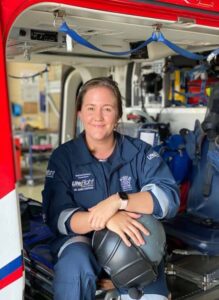
How did you come to be working with LifeFlight?
As a child living in a remote region, I believed that medical care only ever came by plane and I’ve had an interest in it ever since. I had my first experience of retrieval medicine in the Torres Straits when I was working as a Rural Generalist. I feel it is essential to understand both what is like to work in remote areas with limited resources, and also what is involved in transporting patients to regional and tertiary centres. Along with my passion for Rural Generalism, I also have interests in prehospital medicine and critical care. As such I have been undertaking further fellowship training in Emergency Medicine, which has given me the skill set to undertake a training rotation with LifeFlight. This job has not only expanded my experience and clinical skills but also given me the opportunity to give back to a service that continues to assist remote communities when they need it most.
Tell us about your role?
I am a LifeFlight Retrieval Registrar, which involves working full time with the Cairns QGAir EMQ Rescue Helicopter. I work alongside an incredibly talented team including the helicopter pilot, air crew officer, rescue crew officer and intensive care flight paramedic. We operate in shifts over a 24hr period, 7 days a week to provide emergency aeromedical retrievals. This includes facilitating the transfer of critically unwell patients from rural hospitals and health care facilities (such as those I frequently staff as a Rural Generalist) to regional and tertiary facilities. It also involves being tasked as part of the primary response to scenes such as farm accidents, motor vehicle accidents or mass casualty events where we land on scene, provide medical care and fly to definitive care.
How do you get a job as a Pre-Hospital and Retrieval Medicine Registrar with LifeFlight?
When I worked at Thursday Island, I was lucky enough to be put through the LifeFlight Training Course in Pre-Hospital and Retrieval Medicine at the LifeFlight Training Academy. LifeFlight offer this course to external parties, as well as their own recruits. This course trains you in both clinical and aviation operations preparing you well for your PHRM post. The course is run by an amazing leadership team of clinicians who work in various hospitals around the state, as well as for LifeFlight, so when I finished with TI, I applied to LifeFlight.
What was the major factor that helped you decide to choose a career as a Rural Generalist?
Early on in my medical training I was exposed to a group of passionate, talented and down-to-earth Rural Generalists who were dedicated to delivering high quality care in remote areas. I spent my youth in Cape York Peninsula and I feel a strong affinity with rural and remote areas. It was the attraction to rural living combined with the realisation that I could potentially follow in my mentors’ footsteps that encouraged me to undertake Rural Generalist training.
What made you choose to train with the Australian College of Rural and Remote Medicine (ACRRM)?
ACRRM is a perfect fit for the true Rural Generalist. The college is driven by Rural Doctors, it is championed by Presidents like Ewen McPhee who embodies the archetypal Rural Generalist. They speak my language and they understand the challenges of training and working remotely.
Can you provide an example of an experience where you truly knew you had chosen the right career or yourself?
As a Rural Generalist, many of my most rewarding and career affirming experiences occur while providing the essential service of primary care. However, as a Generalist, I also staff the rural hospital services (emergency, wards, birth suite, operating theatre etc). At Christmas I flew via helicopter to Australia’s northernmost island to retrieve a woman with life threatening complications of pregnancy. After stabilising the patient, we flew back to Thursday Island where I gave an anaesthetic to facilitate her caesarean section, then intubated and stabilised the critically unwell baby and arranged retrieval onwards to Intensive Care. Six days later, mum and baby arrived back to Thursday Island ready for discharge home and I provided basic primary care including post-natal checks and contraception advice. To deliver care along the entire spectrum from preventative health to critical care, and to see people survive and thrive, who otherwise would not have due to their remote location, is an incredibly rewarding experience.
LifeFlight has an easy online application system and Monique O’Rielley is the Senior Medical Recruitment Officer who assisted me through the whole process.
If you are thinking of considering a career in Remote and Rural Medicine, take a look at their website about how to achieve this – https://www.acrrm.org.au/





